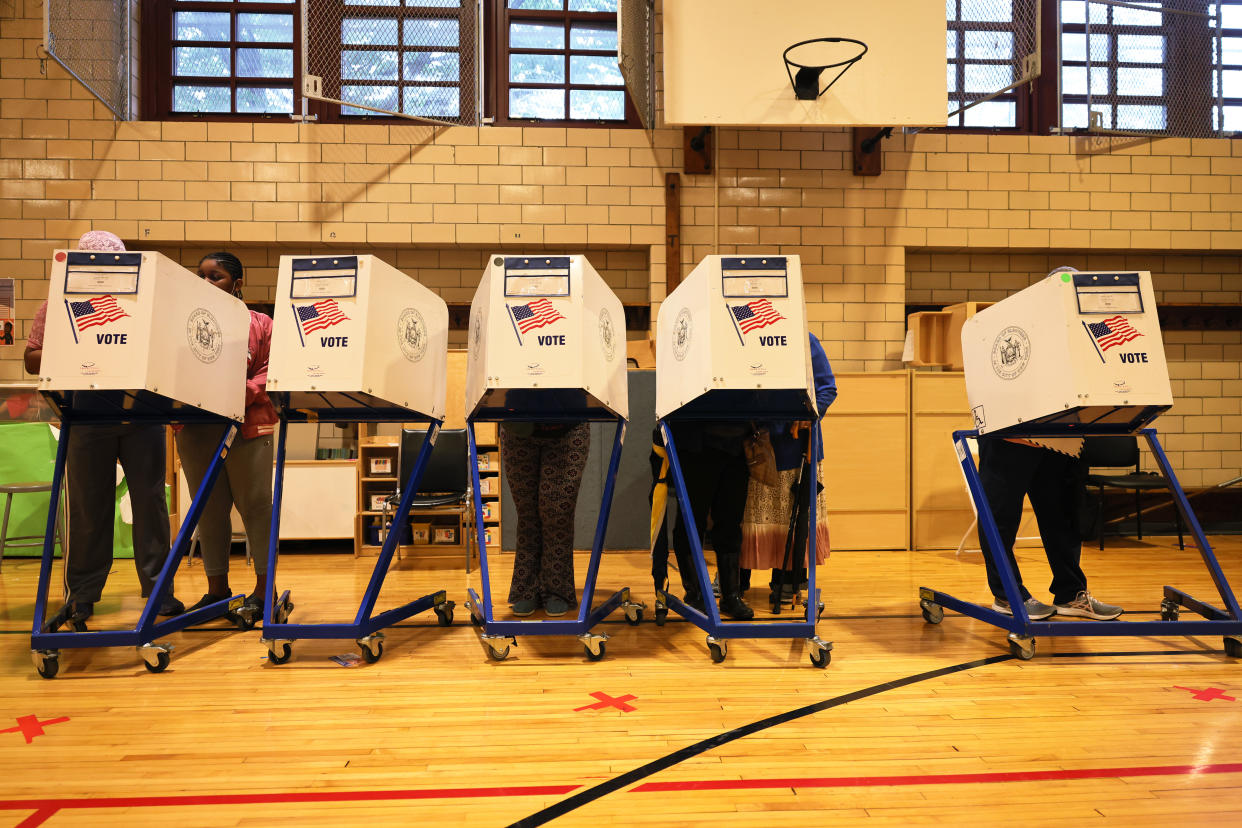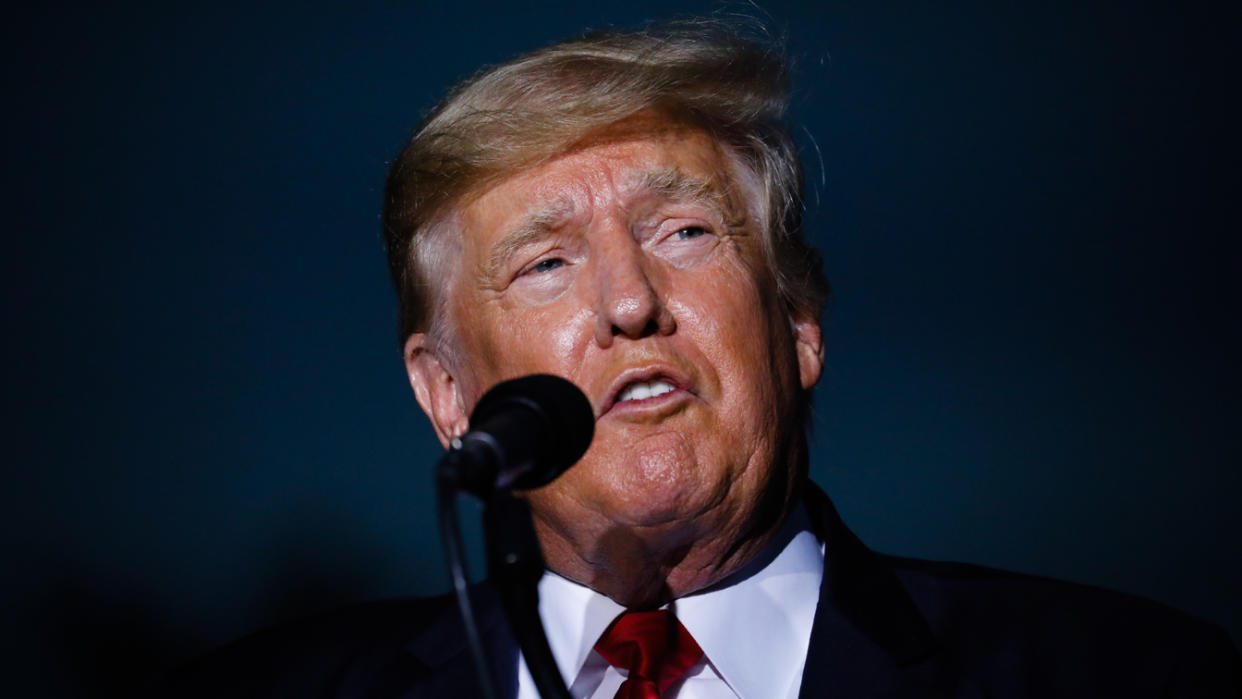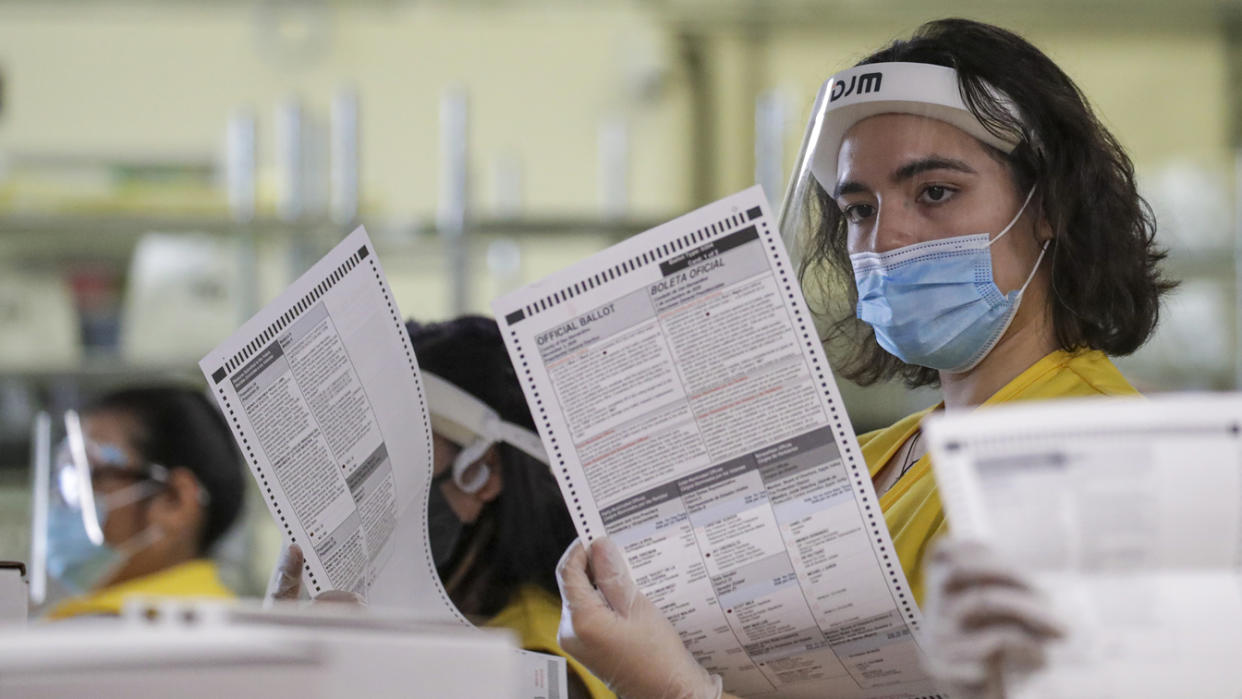Delayed election results present a boon to confusion and conspiracy theories
Even as the legitimacy of American elections has been under constant assault from former President Donald Trump, a number of key races have recently seen embarrassing lags and errors in reporting results.
The New York City mayoral race is the biggest such instance to date, but it shouldn’t have been a surprise that the city’s Board of Elections failed to do even basic due diligence and that this resulted in a miscount of initial results last month. New York’s elections have been an object lesson in ineptitude over the past year.
Last summer, it took the state more than six weeks to determine the winners in two New York congressional primaries, and election officials rejected one out of every five mail ballots, a much higher number than usual.

Last fall, New York officials sent incorrect mail ballots to about 100,000 voters, and had to resend the batch. That mistake in particular provided fresh material for Trump’s lies that the election was rigged, because it came at the height of the fall election, as Trump’s campaign of misinformation was reaching a fever pitch.
The parade of incompetence in New York, and a few other delays in election results, have made this something of a national story, especially the mayoral race, which used ranked-choice voting for the first time. Ranked-choice voting, or RCV, is an election reform that’s been gaining traction nationally as a way to stem partisan polarization, among other ills plaguing American democracy. It works by allowing voters to rank candidates in order of preference, and reallocating those votes as lower-polling candidates are eliminated.
But before New York election officials released bad data on the mayoral race, the Iowa caucuses in February 2020 were bungled by the state and national Democratic Party, leading to a wait of days before a winner was declared.
After the November general election, results in key states were delayed. Several Rust Belt states — Michigan, Wisconsin and Pennsylvania — took three days to determine the presidential winner in their contests, largely because Republicans who controlled the state legislatures refused to allow election officials to prepare mail ballots for counting in the days leading up to the election, as Yahoo News extensively reported.
In Georgia, November’s presidential election was so close that although TV networks called the race for Joe Biden a week after Election Day, state officials held three separate recounts over the next few weeks, which confirmed Biden’s victory. But Trump concentrated much of his attention and lies on this state, even though the outcome would not have changed the presidential result anyway.

The vote in Arizona was also so close that it took a week for most networks to call the race there for Biden, a result that was verified by multiple recounts that — as in Georgia — were dogged by conspiracy theories and protests. And as in Georgia, the results in Arizona would not have changed the outcome of the presidential race even if the state had gone for Trump.
But while Trump’s continued insistence that he won reelection last November is completely without merit and easily refuted, election administrators have nevertheless mishandled a number of closely watched races, making it easier for Trump to continue to spread his fabrications. Election experts have pointed to areas in the Northeast and the Deep South as having “pockets of incompetence” in election administration that are related to the states’ political history.
In the Rust Belt states, Republicans made sure that mail ballots would take days to count. That led to a small but not insignificant irony: Many Democrats were pushing for election officials to count mail ballots that arrived after Election Day.
In Pennsylvania, ballots were allowed to be counted if they arrived up to three days after the election, as long as they were postmarked by Election Day or if they had no postmark. This was part of a broader attempt to expand access to voting by mail during the coronavirus pandemic, which started with public health concerns but then became a partisan issue.
California, which has liberal voting rules in order to maximize participation, often takes a while to report results, but since it is not a competitive state nationally, those delays have not attracted national attention.

But voting rights groups are reassessing some things as they think about how to reduce the amount of potential targets for bad actors. While it was Trump’s lies about the election that led his supporters to riot at the Capitol on Jan. 6, officials who oversee elections have a special responsibility to make sure the reported results are beyond reproach, which has not been the case in a smattering of races in recent years.
Election officials, however, have been caught between demands that voting be made as easy as possible and the reality that delays in reporting results, sometimes a partial consequence of those demands, leave the door open to claims of fraud, however baseless. Trump’s attacks on elections and election officials have prompted a spike in threats against election officials, which experts worry will cause a rash of retirements and a lack of volunteers in future elections.
“When you can request a mail ballot the Saturday before a Tuesday election, no, that's not setting the election officials up for success and the voters up for success,” said an official with a national election administrators' group.
Election officials have been criticized in the past by leftist groups for moving the deadline for requesting a mail ballot further away from Election Day, but the election administration official said, “I know some of those conversations are happening among the more liberal advocacy groups that we can’t go after election officials for things like that.”
Then, finally, many states expanded voting by mail and early voting last year because of the pandemic — but never got the money from Congress that they requested for doing so. Much of the funding for the expansion was provided by private donors, which Republicans in some states are now passing laws to prevent.

Rick Hasen, a top election expert and the author of “Election Meltdown,” has listed four “principal dangers” to democracy. The first three are voter suppression, dirty tricks, and the kind of meritless and incendiary remarks Trump has trafficked in — such as talk of a “rigged” election.
But the fourth, to hear Hasen tell it, is just sheer incompetence, which over time dilutes respect for election outcomes even among those who are resistant to Trump-style mistruths and demagoguery. While the vast majority of U.S. elections are competently administered, this isn’t always the case in big metropolitan areas like Detroit, Philadelphia and New York.
“If New York were a Republican state, there would be protests in the streets over voter suppression, because it runs its elections so poorly,” Hasen told Yahoo News last year. “But yet it gets a pass, because it’s a Democratic state.”
____
Read more from Yahoo News:


